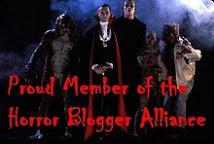And if there is a future for man - insensitive as he is, proud and defiant in his pursuit of power - let him resolve to live with nothing, for he knows well how to do so. Then he may say once more: "Truly, the light is sweet...and what a pleasant thing it is for the eyes to see the sun."
Perhaps more relevant now than it was in 1961, Val Guest's The Day The Earth Caught Fire is a rare science fiction film from its time that refuses to sugar coat the outlook of mankind's future. A production of Great Britain - which I'm assuming received its X Certificate (in modern terms that's basically the MPAA's R rating) specifically for being grim and dismal - there's none of that American flavored stuff with "cute" kids or unbridled patriotism here. Guest's film, instead, focuses on the reactions of a bunch of newspaper men to an unnatural thing that folks today would call...global warming.Shot in black and white - with a couple of orange tinged sequences bookending the film for effect - The Day The Earth Caught Fire has little eye for spectacle. The title will draw comparisons to similarly named sci-fi hits of its time, but saucers, robots, or view screens don't appear anywhere in this film's landscape. Instead, Guest does his best to turn London into a desolate wasteland and even evokes some martial law chaos to add to the film's frantic attempts at terror. There are some strong visuals in the film, for sure, but much of the film's strength comes from the men and women who seem to be battling against time even though they have no idea what they are up against.
The cast is led by Edward Judd, a rather typical chisel-jawed leading man type, and Leo McKern, who most horror fans will recognize from his memorable bit part in The Omen. The former plays the straight man with a good command, particularly when dealing with leading lady Janet Munro and in his interactions with his editor (real world newspaper man Arthur Christiansen, who plays himself), which consist primarily of debates about why he should keep doing his job when the world seems to be spiraling out of control. McKern gets the juicier role, and the gruff voiced actor steals a few of the many talkative scenes in the newsroom in an Edward G. Robinson kind of way.
We learn a little more about the scientific side of the film as the plot goes on - and the explanation of why the Earth seems to be baking is certainly fantastic in nature - but it's the film's political dealings that really carry the most intrigue. As with many films of its era, "the bomb" is front and center in the plot, which leads to a lot of politics and a sense of global dread. Though the film's script focuses in on the news men and their quick thinking approach to the problem, Guest makes sure to spend ample time showing them as they interact with an increasingly panic stricken society. The film escalates well, and the spectacular moments of carnage and marital law late in the film resonate because the film has built its way up to them so well.
The film's ideas should still resonate today, but Guest and company may have underestimated man's ability to destroy the world on their own. The characters in the film talk about weather patterns and things like "ice flow charts" that we still hear about in global warming discussions today, but the primary difference is of course that we don't need to blame nuclear weaponry for current weather concerns. The film lives on as a prophetic one in a way, but I don't think screenwriters of 1961 would have predicted the technologies we'd abuse over the next 50 years accurately. Almost ironically, several bleak scenes set in a busy London square feature a large British Petroleum advertisement that's innocently hanging out in the background.
The Day The Earth Caught Fire spends a lot of time asking questions, but it's very content to not answer all of them. In fact, I'd say it ends at a perfect point to inspire thought in the viewer. This is a more hypothetical and grounded science fiction fan than many fans of the genre are used to, but it stands out thanks to its logical and intellectual approach to apocalypse cinema. I know a lot of people see a film from this era with a title like this one and immediately assume there's going to be cheese involved, but I think Val Guest's work here could surprise you if you've got your mind open to it. This is a take-no prisoners attack on humanity that drives home its point loudly.















2 comments:
Who was Leo 'Rumpole' Mckern in The Omen? It's been a shamefully long time since I've seen The Omen!
He was the old man Bugenhagen (one of my favorite names ever) who gives Gregory Peck the ceremonial daggers.
Post a Comment